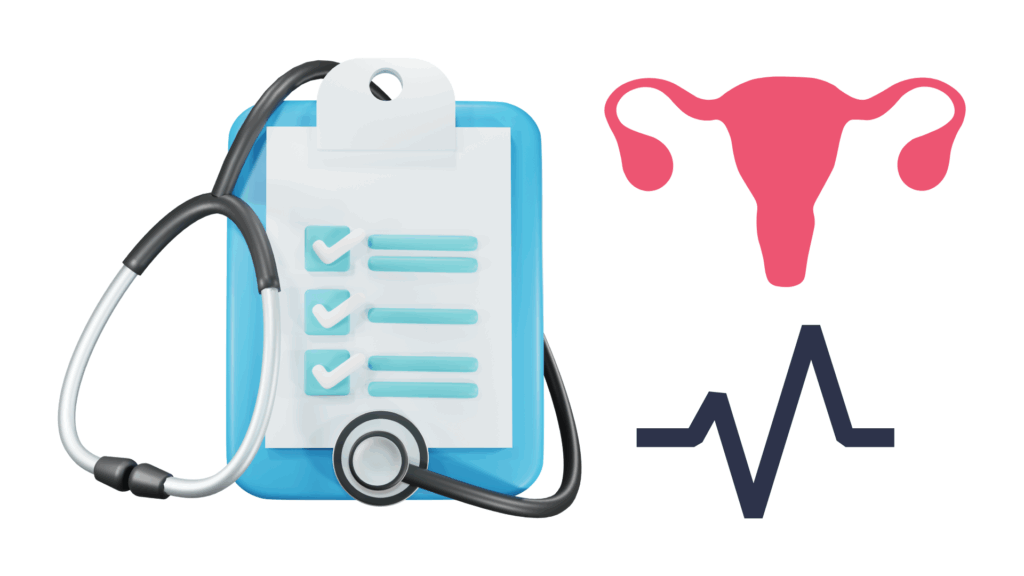How menstrual cycles shed light on overall health

When you visit the doctor, they check your pulse, temperature, breathing rate, and blood pressure. These are called “vital signs” because they offer clues about your body’s overall health status – and possible health risks. But what about your menstrual cycle?
Based on growing evidence, many health experts believe we should treat the menstrual cycle as a vital sign, too.
A new scientific article in F&S Reviews, led by Ana K. Rosen Vollmar, PhD, Shruthi Mahalingaiah, MD, and Anne Marie Jukic, PhD, explains this idea more in depth and shares key takeaways everyone should know.
Key Facts:
- The menstrual cycle is an important sign of health. Changes or ongoing problems with your cycles can be a clue that you may have a health problem that needs attention.
- Clinicians (like doctors) and researchers should ask people about their menstrual cycle patterns at least once to spot any unusual changes or serious problems.
- Clinicians and researchers should also teach patients the basics about their menstrual cycles and how to watch for changes. This way, everyone can notice when there is a change over time.
- Monitoring your menstrual cycle pattern by logging your bleeding days gives you helpful information about your health. It can help doctors take better care of you and help you take charge of your own body, too.
Think of your period like a “monthly report card” for your body. If things are going smoothly, your period usually comes in similar intervals – often monthly, but as short as 21 days apart to as long as even 35 to 38 days apart. If your periods start to change, like arriving late or causing a lot of pain, it might be a signal that something in your body needs attention.
Let’s get more specific:
- Your cycle reflects your body’s balance. The brain, ovaries, uterus, and other organs work together to keep cycles running smoothly. If something changes in your body (like stress, diet, illness, or hormone shifts), your cycle can change too.
- Changes in your period can be early warning signs. Late, missed, or very heavy periods can be linked to health problems like anemia, thyroid disorders, polycystic ovary syndrome (PCOS), endometriosis, bleeding disorders, and even some cancers.
- Monitoring menstrual cycles is backed by science. Paying attention to when your period comes, how much you bleed, how long it lasts, and any symptoms can help you and your doctor spot problems sooner.
- More people are using period information to manage their own health. In recent years, more people have used digital tools, often referred to as “femtech,” to better identify and manage health problems. Drs. Vollmar, Mahalingaiah, and Jukic explain that femtech users report better knowledge, health management, and information-sharing with their doctors. Studies like the Apple Women’s Health Study are using femtech to improve our understanding of reproductive health even further.

What’s normal for a menstrual cycle anyway?
Everyone’s body is unique, and cycles can change over time. Still, there are some basics that are usually true for most people with normal cycles:
- A normal cycle length is 24 to 38 days (this means from the first day your period starts until the day before your next one).
- A normal period lasts 8 days or less.
- A “regular” cycle means your period starts about the same time every month (it’s normal for your cycle to change by up to 7-9 days).
You can learn more about menstrual cycle length and changes here.
If your cycle falls outside these ranges, it may not be a big problem. However, it’s still worth discussing with your doctor. Symptoms that cause you distress (for example, a lot of bleeding or pain) should always be discussed with your doctor or another qualified healthcare provider.
What can changes in your period mean, and when should you pay closer attention?
Drs. Vollmar, Mahalingaiah, and Jukic explain that there are many reasons a cycle might shift. Some are minor, but others are more serious. Here are some examples:
- Perimenopause or transitioning to menopause: Your body is changing, so your hormones are too.
- Breastfeeding: Normal menstrual cycles can pause temporarily if you are fully breastfeeding. This is your body’s natural response to caregiving for your new baby.
- Your lifestyle: Your work hours, how much you drink or smoke, and your exercise can affect your cycle.
- Being exposed to chemicals: Many chemicals found in personal care products (like shampoos), food, water, pesticides, and more can change your hormone levels. Learn more here.
- Chronic health problems: Health problems like PCOS, thyroid disease, diabetes, and eating disorders are linked to irregular cycles.
- And sometimes, a more serious underlying illness: Sometimes, period changes are early signs of more serious problems, like bleeding disorders or cancers.
Why should we all pay attention and talk about menstrual health?
Ignoring or brushing away unwanted menstrual symptoms as “normal” can prevent timely proper care. In some cases, people can go years without understanding that their symptoms are not just “part of life.” By treating the menstrual cycle as a vital sign, we can:
- Catch serious health problems earlier, and even possibly prevent them
- Fight the shame and stigma that still exists around menstruation
- Improve health and quality of life for everyone who has periods
So remember, learning about your own cycle can help you:
- See how your cycles are linked to your whole-body health (including heart, bones, and mental health);
- Notice changes early and get care sooner;
- Have better conversations and feel more confident talking with your doctor;
- And understand what is normal for you.
Your menstrual cycle is more than “just a period.” It’s a vital sign…a key piece of information about your body’s overall health. Paying attention to your cycles and symptoms is a crucial form of self-care. And if you’re ever unsure, don’t be afraid to reach out to a healthcare provider and to speak up for yourself. You deserve answers, and good health.


